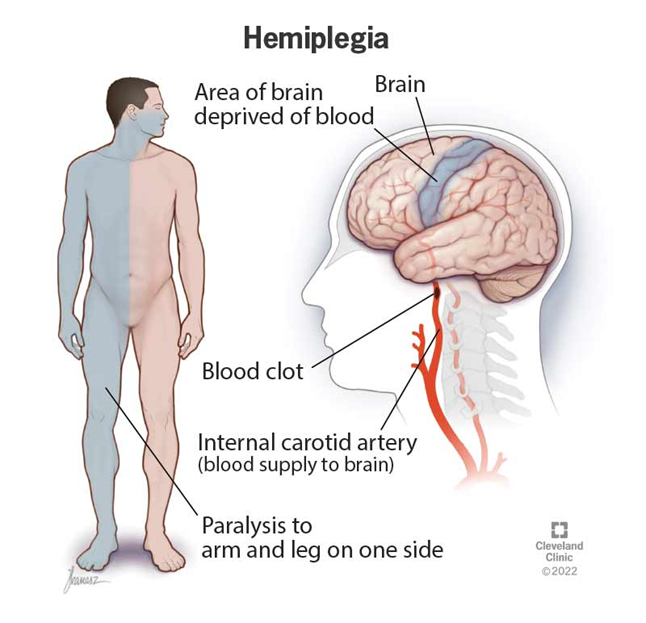A nurse is caring for a client who has right-sided hemiplegia following a recent stroke. Which of the following questions should the nurse ask to determine the client's ability to cope?
"Why do you think this has happened?"
"Are you okay with not being able to do some things you used to do?"
"Is anyone available to assist you with your hygiene?"
"How has this impacted your life?"
The Correct Answer is D
Choice A reason:
Asking "Why do you think this has happened?" may not be the most supportive approach. This question can lead to feelings of guilt or frustration, as the client might not have an answer and could feel blamed for their condition. It is more beneficial to focus on the client's current feelings and coping mechanisms.
Choice B reason:
Asking "Are you okay with not being able to do some things you used to do?" can be perceived as insensitive. It highlights the client's limitations rather than focusing on their strengths and coping strategies. This question might make the client feel more helpless and discouraged.
Choice C reason:
Asking "Is anyone available to assist you with your hygiene?" is important for assessing the client's support system and daily needs, but it does not directly address their emotional coping. While practical support is crucial, understanding the client's emotional and psychological state is equally important.
Choice D reason:
Asking "How has this impacted your life?" is an open-ended question that allows the client to express their feelings and experiences. It helps the nurse understand the client's perspective and coping mechanisms. This question encourages the client to share their emotional journey and can provide valuable insights into their mental and emotional well-being.

Nursing Test Bank
Naxlex Comprehensive Predictor Exams
Related Questions
Correct Answer is B
Explanation
Choice A reason:
An apology from the client for their prior behavior, while it may be a positive step towards recovery, does not necessarily indicate that they have regained control over their actions or that they no longer pose a risk to themselves or others. The decision to discontinue restraints should be based on current behavior and risk assessment rather than past actions.
Choice B reason:
The primary goal of using physical restraints is to prevent harm to the patient or others when less restrictive interventions are not effective. If the client demonstrates control over their actions, it suggests that they are no longer at immediate risk of harm, and therefore, discontinuing restraints could be considered³⁴⁵. This aligns with guidelines that advocate for restraint use to be continually assessed and reduced or discontinued as soon as possible.
Choice C reason:
While a request to be released from restraints indicates a desire for freedom, it does not provide enough information about the client's current mental state or risk of harm. The healthcare team must assess whether the client's condition has improved to a point where restraints are no longer necessary.
Choice D reason:
Signing a behavioral contract is a positive step towards establishing trust and setting expectations for behavior. However, it is not an immediate indication that the client can safely have restraints removed. The effectiveness of such contracts depends on the individual's ability to understand and adhere to the agreed-upon behaviors.

Correct Answer is C
Explanation
Choice A reason:
While the client's anger towards the provider is a valid emotional response and needs to be addressed, it is not the immediate priority. Anger is a common stage in the grieving process, and the nurse should acknowledge the client's feelings and provide support, but it does not pose an immediate risk to the client's physical health.
Choice B reason:
Feelings of guilt are also part of the normal grieving process. The nurse should provide a supportive environment for the client to express these feelings and work through them. However, this emotional concern, while important, is not as urgent as the client's physical health needs.
Choice C reason:
The client's inability to eat more than once a day is the most immediate concern because it can lead to nutritional deficiencies and affect overall health. This issue requires prompt intervention to ensure the client's physical well-being. The nurse should assess the reasons for the client's poor appetite and collaborate with the healthcare team to address this issue, potentially involving a dietitian and providing emotional support.
Choice D reason:
Recalling negative experiences during the marriage indicates that the client is processing past events, which is a part of the grieving process. It is important for the nurse to listen and provide support. However, this is not the immediate priority compared to the client's nutritional intake and physical health.
Whether you are a student looking to ace your exams or a practicing nurse seeking to enhance your expertise , our nursing education contents will empower you with the confidence and competence to make a difference in the lives of patients and become a respected leader in the healthcare field.
Visit Naxlex, invest in your future and unlock endless possibilities with our unparalleled nursing education contents today
Report Wrong Answer on the Current Question
Do you disagree with the answer? If yes, what is your expected answer? Explain.
Kindly be descriptive with the issue you are facing.
